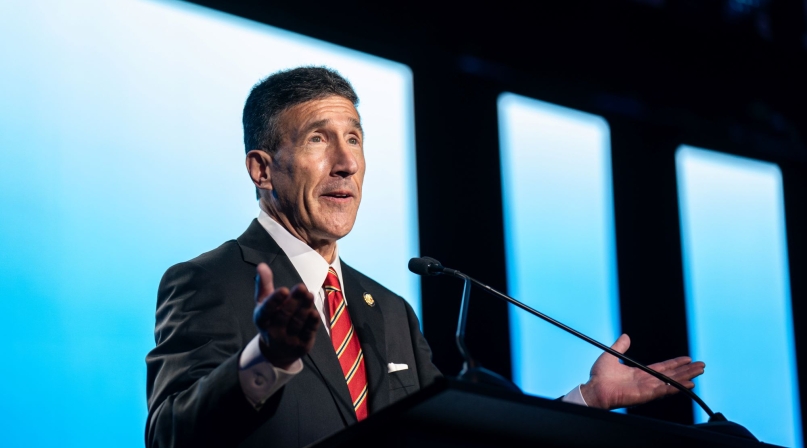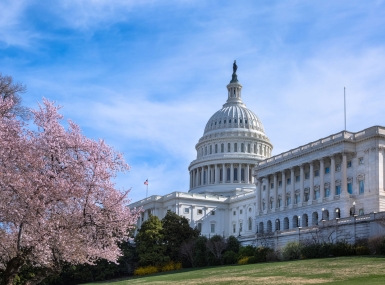Kustoff to counties: Make municipal bonds personal

The key to restoring advance refunding bonds will come down to county officials’ ability to make their stories resonate with their legislators. That was Rep. David Kustoff (R-Tenn.) advice during the March 4 General Session at NACo’s Legislative Conference.
He’s a co-sponsor of the Investing in Our Communities Act, which would do just that. And he did some blunt level-setting with a crowd that was tuning up for afternoon visits to Capitol Hill or anyone communicating with their federal representatives.
“Don’t assume that the congressman or senator we’re visiting with knows everything, because I promise I don’t,” he said. “They’ll appreciate the fact that you talked about it personally and again what it means to your respective counties.”
Advance refunding allows a county to refinance an outstanding bond, allowing the issuer to take advantage of a lower interest rate and pay off old bonds with the proceeds. It was a valuable tool for counties to finance infrastructure projects, though it was lost in 2017 to pay for the Tax Cuts and Jobs Act.
That’s seemingly the only thing Kustoff, who serves on the House Ways and Means Committee, did not want to see made permanent before the 2017 bill expires at the end of 2025. He outlined the stakes in the budget reconciliation negotiations, which he hoped would result in a single tax bill passed and sent to President Trump by the summer, arguing that the sooner the bill is passed, the sooner markets would make sense of economic stability.
“I think we need to do it sooner rather than later, and that’s with everything else that we have, all the other issues that are going on right now,” he said. “We’re working hard right now on the Ways and Means Committee to talk about what we did right in 2017, how the world has changed, what we can do to improve it.”
His main takeaways from the 2017 bill were the lowered individual tax rates and the corporate tax rate, the doubled standard deduction and the condensed tax brackets, which he argued benefited the lion’s share of taxpayers. And taking his own advice, he showed the extension of the cuts worked in his constituents’ favor.
“For somebody in my congressional district, for the average family of four, that’s a tax increase anywhere from about $1,250 to $3,000,” he said. “In my state of Tennessee, almost 90% of the people who file taxes now take advantage of that standard deduction.”
Related News

National Association of Counties and cashVest by three+one Announce $1.3 Billion in New Revenue for Public Agencies in 2024
NACo and cashVest by three+one today announced their collaborative efforts generated over $1.3 billion in new revenue for public entities in 2024, while simultaneously saving them millions in bank fees. This achievement highlights the impact of untapped sources of revenue, providing essential financial stability during uncertain times.

County Countdown – March 25, 2025
Every other week, NACo's County Countdown reviews top federal policy advocacy items with an eye towards counties and the intergovernmental partnership. This week features budget reconciliation, FY 2025 funding and more.

Congress passes “full-year” Continuing Resolution through September 30, 2025
On March 14, the U.S. Senate voted to pass the Full-Year Continuing Appropriations and Extensions Act of 2025 to further extend appropriations and avert a government shutdown through the end of Fiscal Year (FY) 2025 on September 30.
County News
Stakes rise for counties in municipal bond fight
Bond experts see alternatives pale in comparison to tax-free finance tools.
